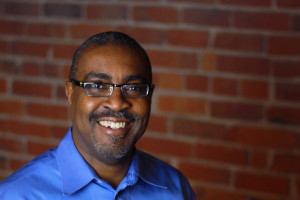How does “paying it forward” play out in academia?
I was recently asking a very talented former student about her experiences as a new instructor. She expressed how much she loved what she was doing, and parenthetically asked how I had known teaching would fit her calling. I couldn’t quite bring myself to tell her how evident her talents and gifts were, or to dispel the mysteries around my powers of observation. However, still enjoying the moment of grandiosity and humor, I was reminded that I had simply lived out a generational legacy.
When I was a junior in college, the head of the psychology department, Dr. Martha Shalitta, said to me, “You are going to teach college students one day:’ It was a remarkable thing to hear as a young African American man-the first generation of his family to attend a four-year college. At that time my highest aspiration was simply to graduate, so becoming a faculty member was not a real consideration. In fact, to this day I’m not sure what compelled her to say this, but it began a dream that God brought to fulfillment. I have been very fortunate throughout my academic career to have people invest themselves in my future, and speak inspiration into my life; moreover to offer dreams beyond my imagination, and wisdom beyond my life experiences.
I am convinced that mentoring is more than scholarly assistance or career coaching; but it is also helping students see their greater potential and then facilitating the possibilities.
This is the most inspiring and renewing aspect of my work. Consequently, of my three most rewarding duties, teaching/training, collaborative scholarship with faculty and students, and mentoring young professionals-mentoring is the most personally satisfying. It means that I sometimes allow students to disturb my scholarship moments, or occupy my research time and linger in conversations that go beyond a particular question to the larger questions of living wisely. I find that this allows me to hear a deeper narrative of their dreams and possible selves, but it also provides a chance to question their perceptions and distortions. Mostly, it gives me a chance to learn who they are and see how God is shaping and inspiring them.
Supporting students as they identify their calling and capacities has become as important to me as helping them determine the future questions that their generation must answer. For them to answer these challenges, they will need to be people of creative intellectual abilities, plus spiritual men and women of maturing qualities. Mentoring can help students avoid the pitfalls of becoming self-absorbed in aggrandizing ventures, or the experience of disillusionment from kindheartedness without discernment. Most importantly, mentoring can inspire them beyond their first dream.
—–
Dr. J. Derek McNeil, Associate Professor of Psychology, received his Ph.D. in counseling psychology from Northwestern and his M.Div. from Fuller. He teaches diversity; clinical interviewing skills; group, marital, and family therapy; and has traveled nationally and internationally presenting workshops and seminars. He has also published four articles and authored chapters in five books. (The above statement was included at the time of publication — Wheaton Magazine, Winter 2008)
